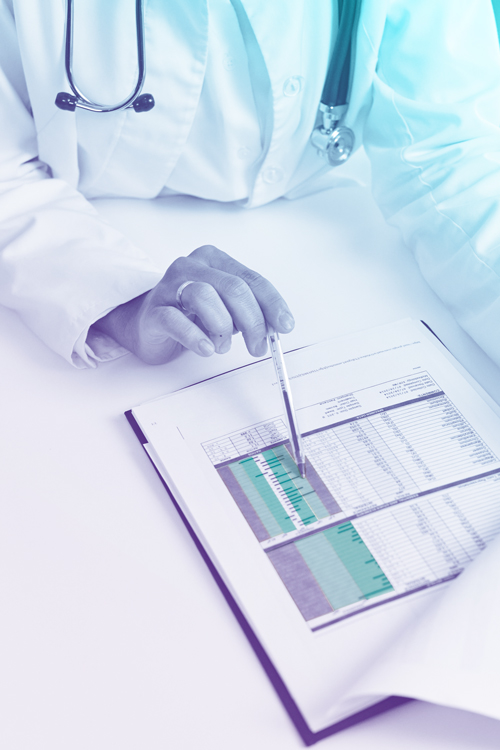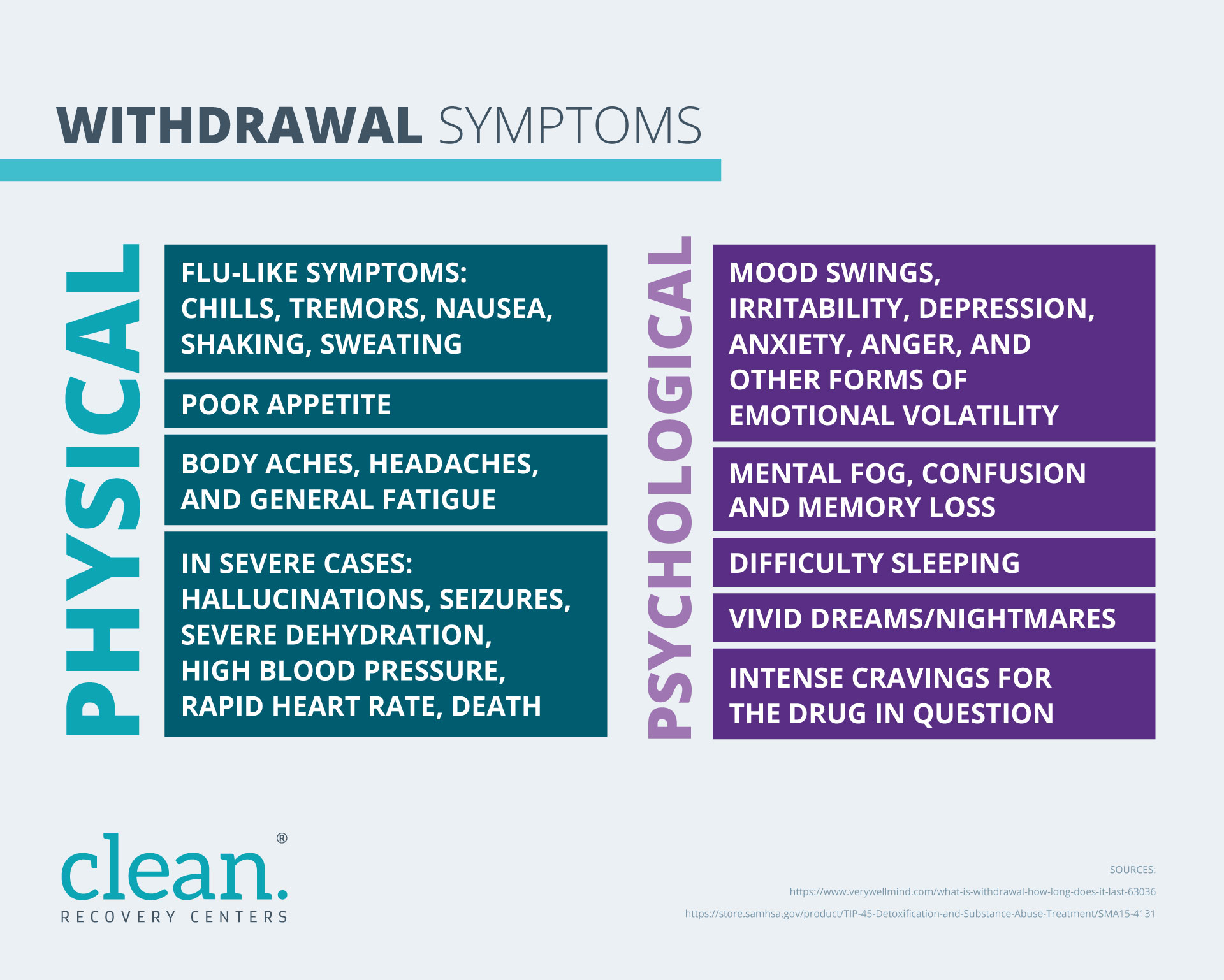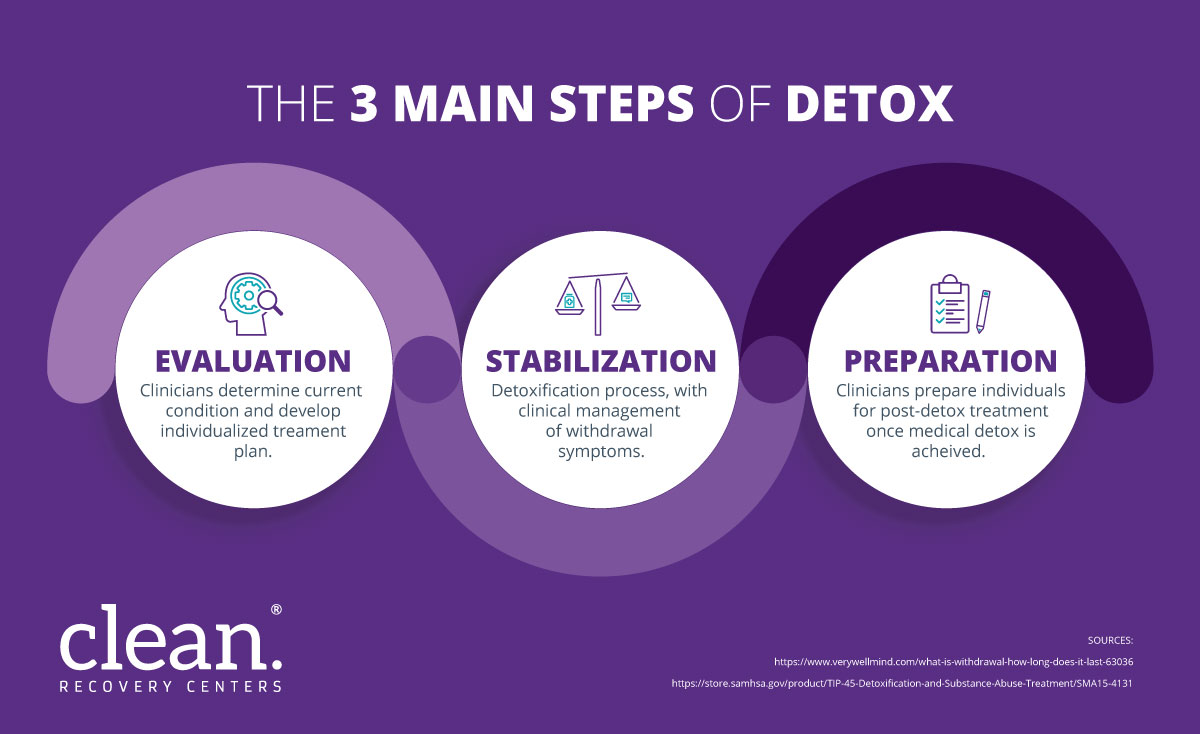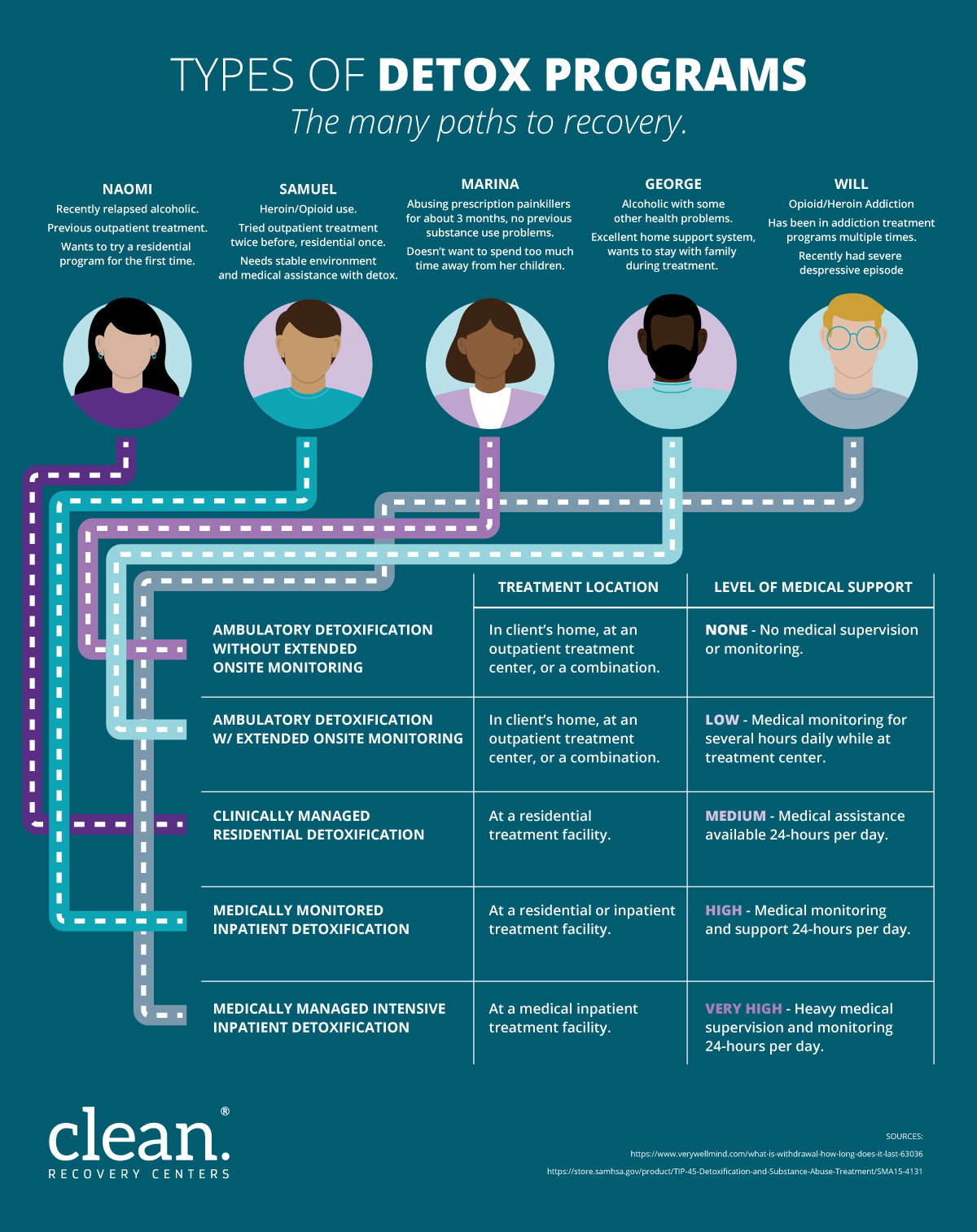Understanding the Drug Detox Process
Drug addiction is an extremely common problem, affecting many millions of people in the United States alone. In fact, according to a 2019 article, over 20 million people in this country deal with substance abuse disorder.
Living with addiction is hard — but fortunately, there are safe and effective ways to break the pattern of use. In varying forms, the process of stopping drug use begins with drug detoxification, or detox, and involves the controlled withdrawal from the given substance to which an individual is addicted. While detox may be a difficult and trying time, it can be safely managed — and most importantly, sober, healthy living awaits on the other side of the process.
Whether you are working to end an addiction yourself, or are helping care for a loved one who is going through the process, understanding the drug detox process can help you safely and confidently make it through to the other side.

What Is Substance Abuse Disorder?
Before discussing the detoxification process, it is useful to review just what constitutes addiction. Substance abuse disorder is the accepted medical term for addiction, and refers to an inability of an individual to safely manage ingestion of a given substance. The substance in question may be legal or illegal — and can range from alcohol, to illicit narcotics, to a prescription medication.
While the use of most drugs contains some propensity for addiction, all drugs are not created equal. For instance, opioids are considered a particularly addictive type of drug; according to the U.S. Department of Health and Human Services, over 10 million people misused opioids in the year 2019. However, detox is necessary for widely varying types of addictions.
What Is Drug Detox?
Drug detoxification, or detox, refers to the process of removing — or “detoxifying” — a given substance from a drug user’s body. In rare cases, drug detox can be as simple as quitting a substance “cold turkey.” However, quitting “cold turkey,” like quitting on one’s own at home, is generally considered unreliable at best and extremely dangerous at worst.
More commonly, and particularly with certain substances, drug detox involves an organized, medical program and schedule to manage the physical and emotional process of drug withdrawal. Drug detox proceeds at different rates for different drugs and different individuals. It may be easier or more difficult, depending on the particular drug in question, and the degree of addiction.
Managing Drug Withdrawal
The primary aim of drug detox is to get the drug out of the drug user’s system. But in cases of addiction, this will likely be accompanied by withdrawal symptoms. Withdrawal can have both physical and emotional components, and can vary in severity depending on the level of dependency, and the specific drug being used.

Common withdrawal symptoms that arise in the drug detox process include the following:
- Chills, tremors, nausea, shaking, sweating, and similar flu-like symptoms
- Mood swings, irritability, depression, anxiety, anger, and other forms of emotional volatility
- Difficulty sleeping
- Poor appetite
- Body aches, headaches, and general fatigue
- Cravings for the drug in question
- In severe cases, hallucinations, seizures, severe dehydration, and other dangerous or life-threatening effects
As a general rule, the physical effects of withdrawal may last up to a couple weeks, while emotional and psychological effects tend to go on longer. However, this rule can vary depending on the severity of addiction and type of drug.
While drug withdrawal itself is not often life-threatening, in extreme cases, it can be (for instance, in cases where withdrawal leads to severe vomiting or diarrhea and consequently serious dehydration). For this reason, drug detox is always safest when done under the care and supervision of medical professionals.
How Does the Detox Process Work?
According to the Treatment Improvement Protocol 45 (2015) put out by the Substance Abuse and Mental Health Services Administration, drug detox has three main steps:

Evaluation
Clinical professionals will evaluate the level of addiction and dependency of the individual in question, and design an effective plan that will guide him or her through the detox process.
Stabilization
Clinical professionals will oversee the medical detox process, based on an individualized plan, to ensure withdrawal proceeds safely. This may involve “tapering,” which refers to the process of gradually weaning an individual off of the abused substance in question.
Fostering entry into post-detox treatment
Clinical professionals will help prepare individuals for one of several types of long-term recovery programs that can aid recovery once the immediate goal of medical detoxification is achieved.
What Types of Drug Detox Exist?
The TIP 45 guide outlines five different types of drug detox. What works best for a given individual will typically depend on the degree of dependency and the substance that is being abused.
The five methods outlined in TIP 45 are below.

Ambulatory Detoxification Without Extended Onsite Monitoring
This method of detox is defined as an “organized outpatient service” and may take place at an individual’s home, in a treatment center, or in another established location, according to a regular schedule. Crucially, this method relies on a strong social network of support for the individual in question, to aid the detox process.
Ambulatory Detoxification with Extended Onsite Monitoring
This method of detox differs from the first by having an added level of care, in which the individual undergoing treatment is monitored for several hours daily by licensed nurses.
Clinically Managed Residential Detoxification
This method of detox involves added support, consisting of residential treatment that includes 24-hour assistance. However, it places a prime focus on social support from peers, rather than medical professionals.
Medically Monitored Inpatient Detoxification
This method of detox also involves inpatient treatment with 24-hour support. However, it places more emphasis on medical support and oversight, and is an ultimately more restrictive form of detox treatment.
Medically Managed Intensive Inpatient Detoxification
Finally, this most extreme level of detox emphasizes 24-hour medical support for acute care needs. This type of detox takes place in a setting with heavy supervision, such as a psychiatric inpatient center.
Ultimately, determining the best setting for an individual’s given detox needs is best done in consultation with his or her healthcare provider, as well as medical professionals with experience in specialized substance abuse treatment.
What Comes After Drug Detox Is Complete?
Successfully making it through the drug detox process is a vital step on the road to recovery. But it is not the end of navigating substance abuse disorder. While drug detox is vital to overcoming the physical conditions of substance abuse disorder, it typically does not address psychological or circumstantial factors that have contributed to abuse of the substance in question.
The process of fully recovering — through the promotion of sobriety and the prevention of relapse — is generally more involved. To be most effective, long-term treatment will usually involve some form of regular therapy to address underlying circumstantial issues that have contributed to substance abuse disorder. It may also involve regular, long-term use of medication (including antidepressants) to stabilize mood or control drug cravings.
Long-term treatment may also emphasize lifestyle interventions. It can sometimes involve vocational training or re-training, as well as seeking out new educational opportunities. It may involve participation in a group like Alcoholics Anonymous or Narcotics Anonymous, for consistent social support. Above all, it will involve sticking to a long-term plan for relapse prevention and care, to promote a healthy, drug-free lifestyle.
Get Help Today
If you or a loved one is suffering from drug addiction, Clean Recovery Centers can help. Clean Recovery Centers has extensive experience navigating drug abuse and addiction, and our facility can aid with treatment at all stages of substance abuse disorder. Whether you or a loved one is seeking help with drug detox or later-stage outpatient treatment — and whether the substance in question is alcohol, a narcotic, a prescription opioid, or some other substance — our well-trained staff can help you safely navigate the road to recovery.
For more information, visit Clean Recovery Centers online, or call us at (831) 548-5154.
Sources:
- https://www.aamc.org/news-insights/21-million-americans-suffer-addiction-just-3000-physicians-are-specially-trained-treat-them
- https://www.mayoclinic.org/diseases-conditions/drug-addiction/symptoms-causes/syc-20365112
- #
- https://www.verywellmind.com/what-is-withdrawal-how-long-does-it-last-63036
- https://store.samhsa.gov/product/TIP-45-Detoxification-and-Substance-Abuse-Treatment/SMA15-4131


